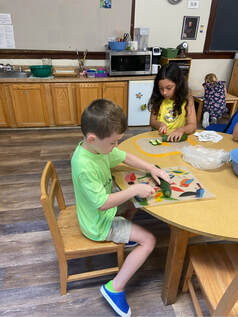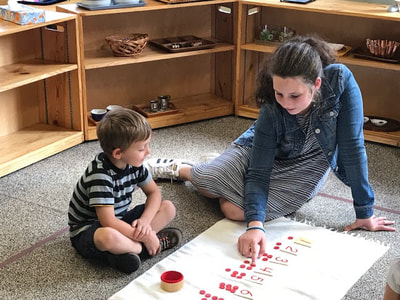Why a Montessori Education?
“In Every Child the World Begins Anew” – Maria Montessori

Montessori offers an alternative method of education based on the principle that children want to learn and even teach themselves if the environment is prepared effectively. Montessori schools teach holistically, recognizing the value and importance of spiritual, physical, social, emotional, and psychological health as well as academic skill development.
In the past 60 years, research has proven the long term positive effects of such an education, including the following:
To learn more about about the scientific research behind these principles and how they are implemented in a Montessori classroom, read Angeline Stoll Lillard's Montessori: The Science Behind the Genius.
Learn more about the importance of a Montessori Education at Alcuin...
In the past 60 years, research has proven the long term positive effects of such an education, including the following:
- Cognition is optimized when movement is consistent with thinking.
- We learn best when we are interested in what we are learning about.
- Extrinsic rewards (grades and payments, etc.) reduce motivation and level of performance once the rewards are removed.
- People thrive when they feel a sense of choice and control.
- We learn best when our learning is situated in meaningful contexts.
- Children can learn very well from and with peers; after age 6 children respond well to collaborative learning situations.
- Children thrive on order, routine, and ritual.
- Certain adult ways (counseled by Montessori) are associated with better child outcomes.
To learn more about about the scientific research behind these principles and how they are implemented in a Montessori classroom, read Angeline Stoll Lillard's Montessori: The Science Behind the Genius.
Learn more about the importance of a Montessori Education at Alcuin...



